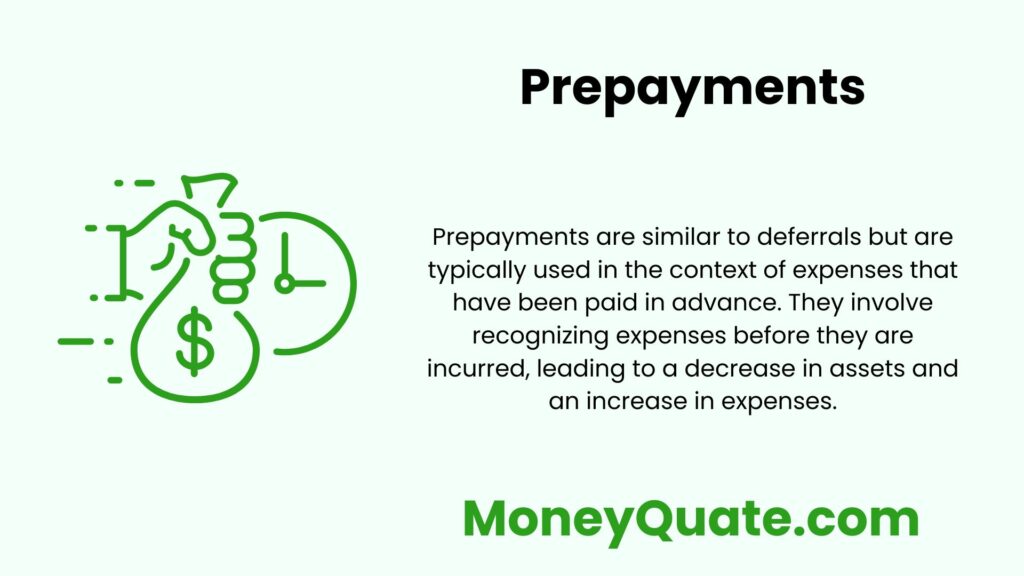Prepayments refer to advance payments made by a company for goods or services that it will receive in the future.
These payments are recorded as assets on the balance sheet until the corresponding goods or services are received, at which point they are recognized as expenses.

Contents
Understanding Prepayments
Prepayments, also known as prepaid expenses, represent payments made by a company in advance of receiving goods or services. They are recorded as assets on the balance sheet until the related benefits are realized.
Examples
Insurance Premiums: A company pays its annual insurance premium at the beginning of the year.
The payment is initially recorded as a prepaid expense and gradually expensed over the coverage period.
Rent Payments: A business pays rent for office space for the upcoming quarter in advance.
The payment is recorded as a prepaid expense until the rental period is incurred.
Treatment on the Balance Sheet
Prepayments are classified as current assets if they are expected to be consumed within one year and as non-current assets if their benefits extend beyond one year.
They appear on the balance sheet under the assets section, typically listed as “Prepaid Expenses” or “Prepayments.”
Recognition as Expenses
As the benefits associated with prepayments are realized, they are gradually expensed over time.
The portion of the prepayment that corresponds to the period consumed is transferred from the balance sheet to the income statement as an expense.
Adjustments and Amortization
Prepayments are adjusted regularly to reflect the portion of the asset that has been consumed.
This adjustment process, known as amortization, ensures that the expenses are matched with the revenues they generate, following the matching principle in accounting.
Importance of Prepayments
- Prepayments enable companies to budget and plan for future expenses in advance.
- They help in accurate financial reporting by ensuring that expenses are recognized in the periods they contribute to revenue generation.
- Prepayments provide transparency in financial statements by reflecting the true economic position of the company.
Conclusion
Prepayments play a vital role in financial management by allowing companies to anticipate and prepare for future expenses.
By recording prepayments appropriately and recognizing them as expenses over time, businesses can ensure accurate financial reporting and better decision-making.